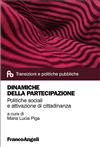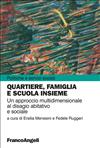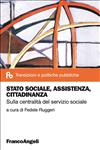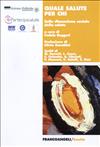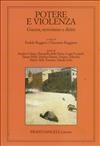The following four articles in this issue may be considered as strictly related. It seems advisable, therefore, to present there abstracts altogether. The four articles are: a) the article by Fedele Ruggeri, concerning the relationship between citizenship and authority (such a relationship is seen by Ruggeri as having an essential value, non only for its very development, but also in order to avoid atrophy risks within the security scenario); b) the one by Simona Carboni, dealing with the citizens’ images shared by the operators in the security field; c) the study by Riccardo Guidi, focused on the local police orientation toward citizens in the context of the local police operational characteristics; d) the analysis by Marta Bonetti regarding the tensions within local police stemming out of the difficulties connected with the management of its interactions with citizens, on one hand, and the sharing with them of significance and objectives, in the other. Accordingly, this long abstract deals, in the first place, with the Ruggeri’s discussion of how to define the real essence of the relationship between citizenship and authority. He begins with the identification of three essential dimensions of this phenomenon. One, and very important, dimension is related to the impossibility of thinking in terms of the ultimate nature of things, that is, of their essence. On the basis of Weber’s argument concerning the impossibility of apprehending the direction of the cosmic development, and hence the necessity to develop, on our part, the ability to create it, Ruggeri states two essential elements for epistemological orientation, closely interconnected. The first is the reciprocal impossibility of expanding reality predicates and knowledge propositions; the second, the impossibility of expanding the reference to the viewpoint of the observer, as well as to the n observers’ viewpoints. In such a way, it will be possible to define, in a less approximate (and/or less wistful) way; the significance of said relationship between citizenship and authority, making it possible to move operationally within it. Concerning methodology, instead of a questionnaire with pre-codified answers, it has been preferred to allow the relatively few Local Police operators involved, a wider freedom in analyzing and deepening the different issues. As for the results, three clusters of responses have been identified. The first relates to a growing demand for intervention by the authority. The second is connected to a strong need to keep closely connected the various aspects and functions of the Local Police aspect. The third justifies a stronger necessity and possibility, for services, operators and citizens, to develop their knowledge, self-consciousness and recrimination. Luca Carboni discusses the results of another inquiry about the social representations of citizens shared by the security operators. To such a purpose, Carboni examines the importance of said representations as an instrument to support the managing of an operational change. The main findings of Carbon’s research concern: - the citizens’ fragmentation in terms of needs and interests, with a tendency toward conflict; - the way in which security is produced on a day-to-day basis; - the citizen seen as a danger source; - the citizen seen as an actor who needs support. In his concluding remarks, Carboni points how important is the representation of the citizen as an actor to support for a security service oriented for the citizens’ protection and valorization. 197 Riccardo Guidi focuses his analysis on the understanding of connections between the security authority’s role and citizenship In such a connection, Guidi emphasizes the relationship between the various functions of Local Police, and the tasks to be performed by said Police. Assuming as a starting point the above classification, Guidi defines six essential Local Police activities, that is: - to effectively communicate both image and offer of service of Local Police; - to effectively assist crime victims; - to effectively protect weakest people; - to effectively assist citizens in understanding the social meaning of laws and regulations; - to offer and support a stable basis for recrimination and crime reporting; - to effectively respond to recriminations and crime reporting. In conclusion, Guidi’s opinion is that Local Police should strengthen activation, localization and integration, through a centralization of the priorities ranking, a better operators’ training, and a consolidation (on a more permanent basis) of Local Police relations with political parties. Marta Bonetti scrutinizes the tensions originating within Local Police out of the orientation toward citizens. Bonetti’s work is aimed to define a new orientation for Local Police future action and practice, and hence it must be defined as an example of research intervention. Among her most interesting findings is the uncertainly on the part of the Local Police operators in defining a situation which is characterized by change, ambiguity, an unpleasant perception of their new role and a new scenario of constant transformation. In addition there is now, for Local Police operators, the need to confront themselves with the diversity of identification and competence. Besides, there is a lack of an orientation toward action. Finally, it should be kept in mind that Local Police operators must function as an interface of Local Government with citizens, in a situation characterized by continuous organizational, sociological and psychological turmoil, due (among other things) to the lack of a clear action orientation and definition of roles.
